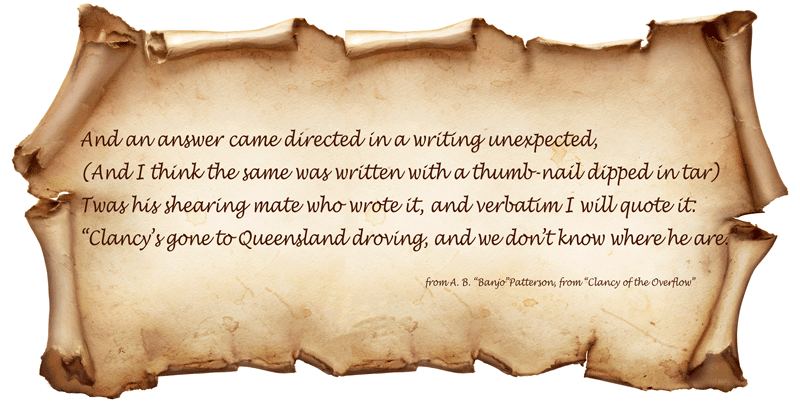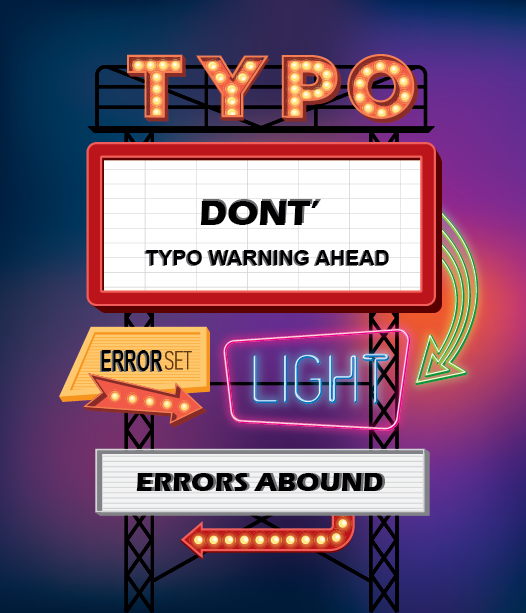
How did you go with last week’s quiz, where we asked you to identify the book, movie, television series, play or poem based on a few words
1. 42
Hitchiker’s Guide to the Galaxy a novel by Douglas Adams.
The number 42 was the answer to the ultimate question of life, the universe and everything. A super computer, Deep Thought, was created to come up with the answer, which it did, although it took seven and a half million years to do it, and by then, no one knew what the original question was.
2. A handbag
The Importance of Being Earnest a play by Oscar Wilde.
As children, we devoured books, especially second-hand books we’d get from the opportunity shops. Back in those days, there were a lot books about girls going to boarding school. The Merry books, by Clare Mallory, were our absolute favorites. In Merry Begins (I think), they put on a play—The Importance of Being Earnest—and that line, about the handbag, came up in the book. It wasn’t till years later that we actually saw the play.
3. As you wish
Princess Bride. The book was written by William Goldman—which I confess I haven’t read—but I have seen the movie so many times I can almost say the lines along with the characters. There are so many quotable quotes. “Inconceivable.” “Have fun storming the castle.” “Only mostly dead.” And, of course, the absolutely unforgettable, classic, “My name is Inigo Montoya. You killed my father. Prepare to die.”
4. Beam me up
“Beam me up, Scotty,” is from Star Trek, the original series. Can’t say any more than that.
5. Elementary
I believe that in Arthur Conan Doyle’s books, Sherlock Holmes never said “Elementary my dear Watson.” That came later, in the films. Although Holmes did say the word, “Elementary,” in The Crooked Man.
The word—the phrase, in fact—is, however, indelibly associated with Sherlock Holmes. So much so that a recent television series about a modern-day Holmes and Watson was called Elementary, and no explanation of the title was needed.
6. Frankly, my dear
A little bit of a cheat on this one, because it usually comes with the rest of the sentence. “Frankly my dear, I don’t give a damn.”
Yes, it’s Rhett Butler in the 1939 movie Gone With the Wind. In Margaret Mitchell’s book the film was based on, I believe he said something more along the lines of “Frankly, I don’t give a damn.”
7. Friends, Romans, countrymen
Marc Antony’s speech from William’s Shakespeare’s Julius Caesar. As children we had this game where we’d go around saying, “Friends, Romans, countrymen, lend me your ears, and we’d all make a play of taking off our ears and handing them to the person who asked.
The things kids do.
Even if you don’t go to see Shakespeare’s plays, he’s beautiful to read—aloud or silently. He has this amazing way with words. Not to mention, there’s so much that quotable.
8. Here, kitty, kitty, kitty
Yes, Kate Daniels’ first book. Ilona Andrews’ Magic Bites, when Kate first meets Curran.
9. Houston, we have a problem
This quotation comes from the 1995 movie, Apollo 13, starring Tom Hanks, Kevin Bacon, Bill Paxton, Gary Sinise and Ed Harris.
It’s not quite a direct quotation from the real Apollo 13 mission, but they did say something similar.
10. I ate’nt dead
Esmeralda Weatherwax, from Terry Pratchett’s Discworld series. Esmerleda goes out borrowing other bodies and while she does, her own body remains in a comatose state. Hence she wears a sign “I ate’nt dead” to avoid embarrassing accidents. (Note, ate’nt is where Esmeralda puts the apostrophe.)
11. It’s just a flesh wound
Monty Python’s film, the Holy Grail. It’s said by the Black Knight, after he loses both arms.
12. More like guidelines, rather than rules
The actual words are “The code is more what you call guidelines, than actual rules.” It comes from the movie Pirates of the Caribbean. Captain Barbossa says this to Elizabeth, after she tries to invoke the pirate code.
13. My preciousss
I added the extra s’s myself. From The Lord of the Rings films. Gollum, of course.
14. No man is an island
This comes from a poem of the same name written by John Donne. There are two quotable quotes from the poem, the other being “for whom the bell tolls”, but that’s also the name of a novel published by Ernest Hemingway, so I used “no man is an island” instead.
15. Shaken, not stirred
Yes, Ian Fleming’s James Bond loves his martinis shaken, not stirred.
16. The best laid plans
Another poem, where the common quote isn’t quite the same as the real thing, because the actual words are “The best laid schemes”.
This is from Robbie Burns poem, To a Mouse. Again, another poem I love to read aloud and silently. Great poem.

17. To infinity and beyond
Buzz Lightyear’s famous catchphrase from the Toy Story films.
18. We don’t know where he are
A. B. (Banjo) Patterson is one of the giants in Australian literature. This from one of his best-known poems, Clancy of the Overflow.
19. What is best in life?
Conan the Barbarian. The quote comes from the 1982 movie, not from the Robert E. Howard books. I believe the scriptwriter took the quote from an earlier book about Genghis Khan, not written by Howard.
While I know the quote, the closest I’ve ever been to Conan is a beta read I did of another author’s book. He told me it was in the style of Conan the Barbarian.
“I haven’t read Conan,” I said, “But I’ll beta read if you want me to.”
I can’t remember how good the story was or wasn’t, because by the end I was so frustrated by the women in the book, who were all dumb objects, just along to further the main character’s story. If I recall my critique came back something along the lines of, “I found it difficult to warm to your protagonist. I also feel you are likely to alienate half your potential readership by your portrayal of women. Maybe you should give them more active roles.”
From what I’ve read since, the author sounds as if he got exactly what he was trying for. A Conan-type story. I have to say, my feedback was useless to him.
20. You can’t handle the truth
Jack Nicholson’s immortal line in the 1992 movie A Few Good Men.
Daniel Kaffee (Tom Cruise): “I want the truth.”
Colonel Jessup (Jack Nicholson): “You can’t handle the truth.”
An excellent movie.







